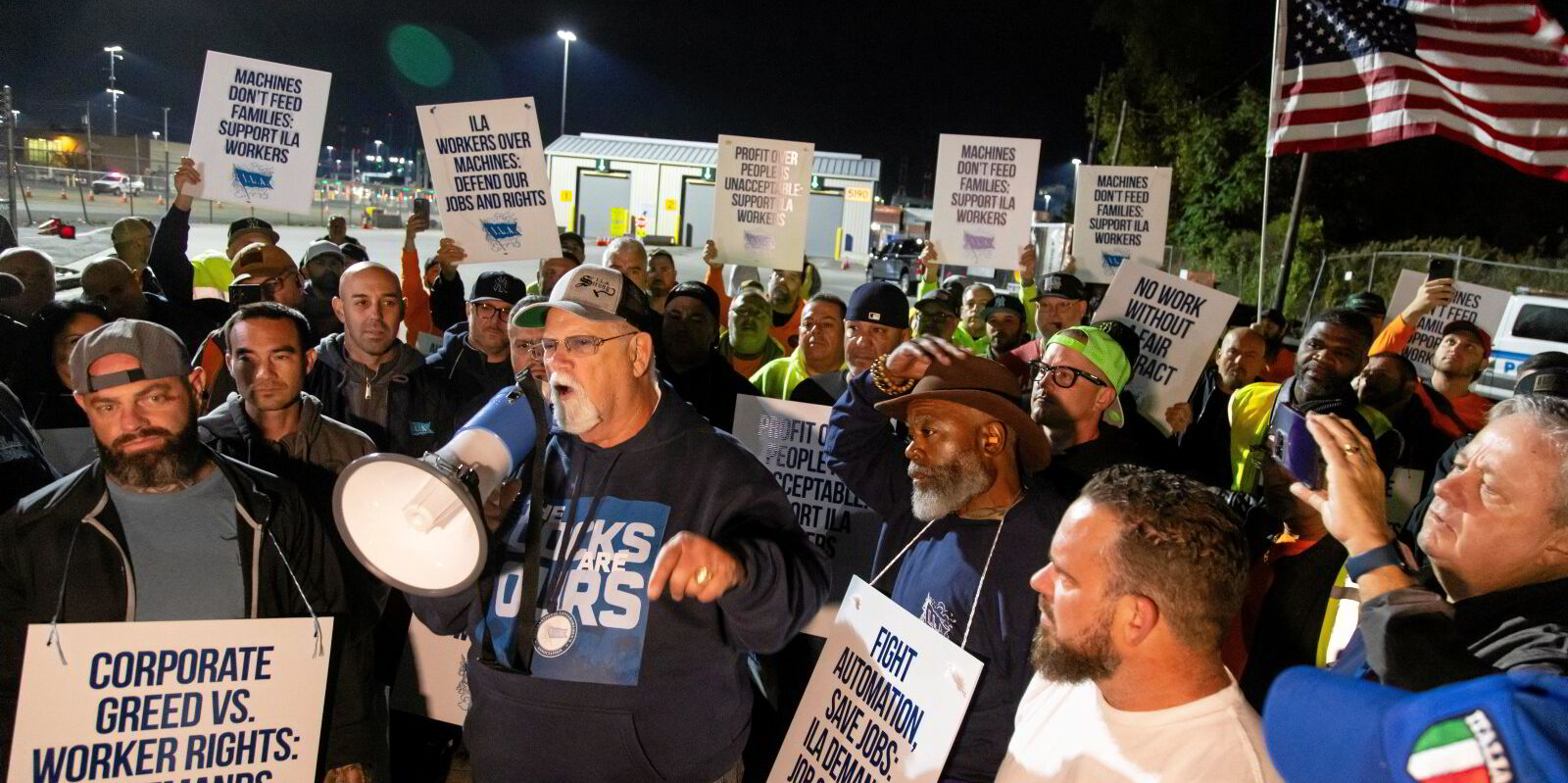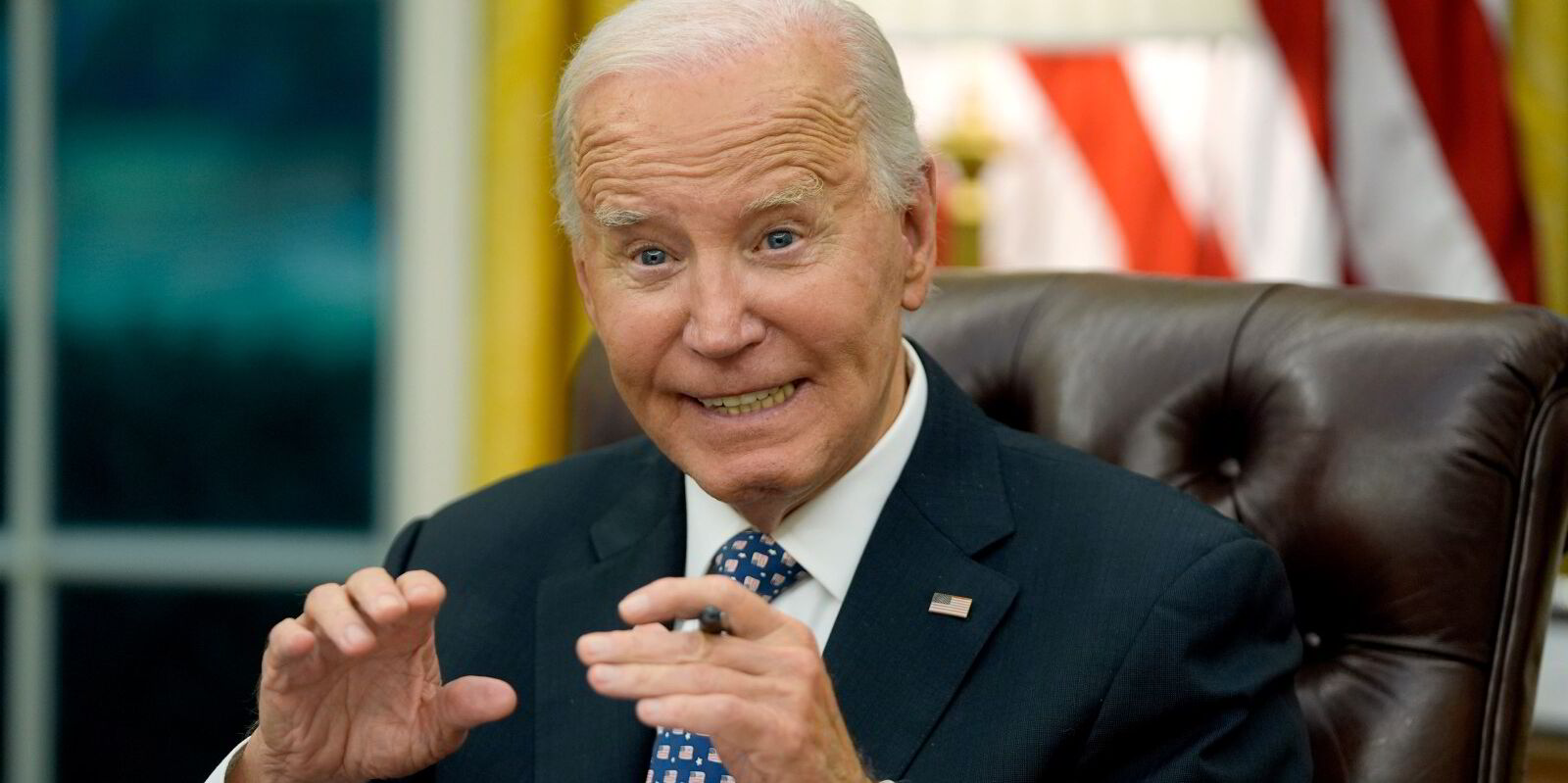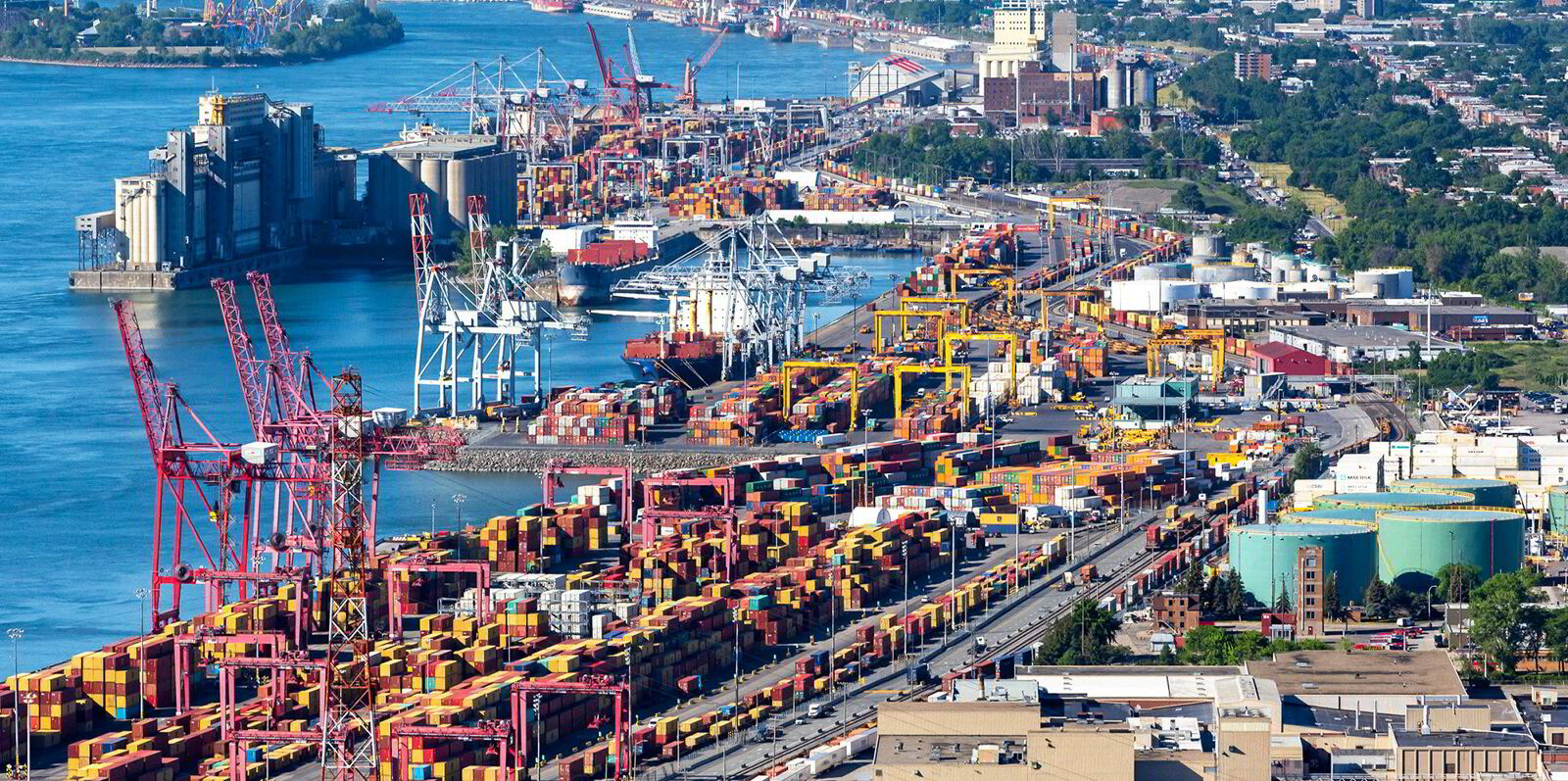The International Longshoreman’s Association can take a piece out of global trade, and they know it.
When the union members went out on strike on the US East Coast and Gulf Coast on Tuesday morning, 10 of the country’s 25 largest ports were shuttered, according to media reports and government statistics.
ILA president Harold Daggett said in a video published by the union: “People these days don’t know what a strike is. When my men hit the streets from Maine to Texas, every single port: Lockdown.”
He said the strike would be all over the news for a week before car dealership layoffs in the second week and malls shutting down in the third.
He said: “They can’t get the goods from China. They can’t sell clothes. They can’t do this. Everything in the United States comes on a ship.”
He added: “In today’s world, I’ll cripple you. I’ll cripple you. And you have no idea what that means. Nobody does.”
Estimates on how hard the strike would hit the US economy vary wildly.
Consulting firm Anderson Economic Group estimates a week-long strike would mean a $300m drag on the US economy, while The Conference Board, a think tank, estimated $540m per day and JP Morgan warned as much as $5bn.
Oxford Economics reportedly estimated an impact anywhere from around $640m per day to just over $1bn per day for each week the strike goes on.
Among the ports that the US Maritime Alliance — the employers’ group known as USMX — said were closed, the ports of Savannah, New York/New Jersey and Hampton Roads could lose more than half their traffic given current trade flows.
The volume estimates come from MITRE Corp, a Massachusetts and Virginia-based think tank, and a report it published over the summer.
Gulf Coast ports, like Houston, might be less impacted, it said, given the volume of oil and oil products that move through the port.
Still, Houston is the sixth-busiest US port by teu, along with fellow Gulf Coast port New Orleans, according to the US Department of Transportation’s 2024 Port Performance Freight Statistics report.
Of the top 25 ports by teu volume, 17 are on the US East Coast but all trail the Los Angeles-Long Beach port complex in California.
In the video interview, Daggett said liner operators were making billions while ILA members were working through the Covid-19 pandemic, catching and even dying from the virus.
Labour reportedly wants a total raise of 75% over a six-year contract and protections over automation, while USMX has offered 50% and the same protections against automation in the current contract.
Daggett reiterated the Covid-19 line while addressing members at the Maher Terminal facility in Elizabeth, New Jersey, on Tuesday morning.
“They’re making billions and billions of dollars through [a] pandemic when all of us were working and making money,” he said, before claiming companies were making $30,000 per container or more.
“Who’s the greedy one here? These companies over in Europe. They don’t give a fuck about us. We’re going to show them that they’re going to have to give a fuck about us because nothing’s going to move without us.”






